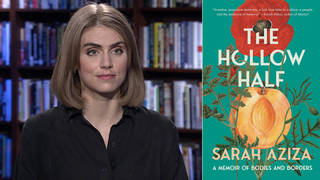
Topics
On July 5, 1852, Frederick Douglass delivered one of his most powerful speeches against slavery in Rochester, NY. We hear a dramatic reading by Bernard White of Pacifica Radio station WBAI of Douglass’ historic Fourth of July Oration.
Sunday is the Fourth of July. While many in America hang flags, attend parades and watch fireworks, Independence Day is not a cause of celebration for all. For Native Americans, it is a bitter reminder of colonialism, which brought disease, violence, genocide and the destruction of their culture and way of life.
For African Americans, Independence Day did not extend to them. While white colonists were declaring their freedom from the Crown, that liberation was not shared with millions of Africans captured, beaten and separated from their families and forced into brutal slavery thousands of miles from home.
Today, we turn to one of the most powerful voices of the abolition movement: Frederick Douglass. He was born a slave in Maryland in 1818. As a young boy, he was taught how to read by slaveholder Sophia Auld. It was a dangerous and radical act that changed his destiny.
Douglass escaped from slavery in the 1830s and became a leader in the growing campaign against slavery through lectures and his anti-slavery newspaper, The North Star.
On July 5, 1852, Douglass delivered one of his most powerful speeches against slavery in Rochester, NY. This is a dramatic reading by Bernard White of Pacifica Radio station WBAI of Fredrick Douglass historic Fourth of July Oration.












Media Options